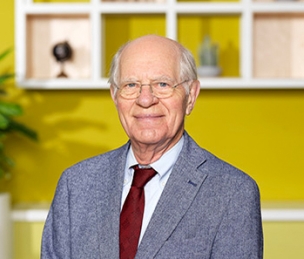Displaying 1 - 5 of 5
-
Greenfield, P. M., Slobin, D., Cole, M., Gardner, H., Sylva, K., Levelt, W. J. M., Lucariello, J., Kay, A., Amsterdam, A., & Shore, B. (2017). Remembering Jerome Bruner: A series of tributes to Jerome “Jerry” Bruner, who died in 2016 at the age of 100, reflects the seminal contributions that led him to be known as a co-founder of the cognitive revolution. Observer, 30(2). Retrieved from http://www.psychologicalscience.org/observer/remembering-jerome-bruner.
Abstract
Jerome Seymour “Jerry” Bruner was born on October 1, 1915, in New York City. He began his academic career as psychology professor at Harvard University; he ended it as University Professor Emeritus at New York University (NYU) Law School. What happened at both ends and in between is the subject of the richly variegated remembrances that follow. On June 5, 2016, Bruner died in his Greenwich Village loft at age 100. He leaves behind his beloved partner Eleanor Fox, who was also his distinguished colleague at NYU Law School; his son Whitley; his daughter Jenny; and three grandchildren.
Bruner’s interdisciplinarity and internationalism are seen in the remarkable variety of disciplines and geographical locations represented in the following tributes. The reader will find developmental psychology, anthropology, computer science, psycholinguistics, cognitive psychology, cultural psychology, education, and law represented; geographically speaking, the writers are located in the United States, Canada, the United Kingdom, and the Netherlands. The memories that follow are arranged in roughly chronological order according to when the writers had their first contact with Jerry Bruner. -
Levelt, W. J. M. (1991). Die konnektionistische Mode. Sprache und Kognition, 10(2), 61-72.
-
Levelt, W. J. M. (1991). Lexical access in speech production: Stages versus cascading. In H. Peters, W. Hulstijn, & C. Starkweather (
Eds. ), Speech motor control and stuttering (pp. 3-10). Amsterdam: Excerpta Medica. -
Levelt, W. J. M., Schriefers, H., Vorberg, D., Meyer, A. S., Pechmann, T., & Havinga, J. (1991). Normal and deviant lexical processing: Reply to Dell and O'Seaghdha. Psychological Review, 98(4), 615-618. doi:10.1037/0033-295X.98.4.615.
Abstract
In their comment, Dell and O'Seaghdha (1991) adduced any effect on phonological probes for semantic alternatives to the activation of these probes in the lexical network. We argue that that interpretation is false and, in addition, that the model still cannot account for our data. Furthermore, and different from Dell and O'seaghda, we adduce semantic rebound to the lemma level, where it is so substantial that it should have shown up in our data. Finally, we question the function of feedback in a lexical network (other than eliciting speech errors) and discuss Dell's (1988) notion of a unified production-comprehension system. -
Levelt, W. J. M., Schriefer, H., Vorberg, D., Meyer, A. S., Pechmann, T., & Havinga, J. (1991). The time course of lexical access in speech production: A study of picture naming. Psychological Review, 98(1), 122-142. doi:10.1037/0033-295X.98.1.122.

Share this page